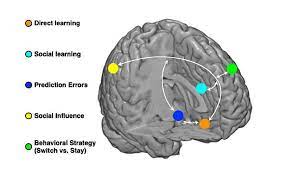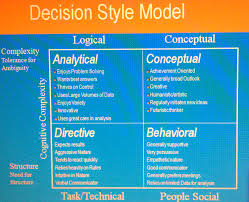The Importance of Intertemporal Decision Making
Intertemporal decision making is the process of making choices that involve trade-offs between costs and benefits that occur at different points in time. This type of decision making is crucial in various aspects of life, such as personal finance, career planning, and even health management.
One key aspect of intertemporal decision making is the concept of time preference, which refers to an individual’s preference for receiving a benefit sooner rather than later. This preference can vary among individuals and can greatly influence the decisions they make.
For example, when it comes to saving money for retirement, individuals who have a high time preference may prioritize spending their money on immediate gratification, such as buying luxury items or going on expensive vacations. On the other hand, individuals with a low time preference are more likely to save their money for the future and prioritize long-term financial security.
Understanding intertemporal decision making can help individuals make better choices that align with their long-term goals and values. By considering both short-term and long-term consequences, individuals can make more informed decisions that lead to greater overall satisfaction and well-being.
In conclusion, intertemporal decision making plays a significant role in shaping our lives and determining our future outcomes. By being mindful of the trade-offs between present and future benefits, we can make decisions that lead to a more fulfilling and rewarding life.
Understanding Intertemporal Decision Making: Key Questions Answered
- What is the meaning of intertemporal?
- What is temporal decision making?
- What is the intertemporal decision model?
- What is the problem of intertemporal choice?
- What is temporal discounting psychology?
- What are the examples of intertemporal decision making?
What is the meaning of intertemporal?
Intertemporal refers to the concept of considering and making decisions that involve trade-offs between costs and benefits that occur at different points in time. In intertemporal decision making, individuals need to assess the implications of their choices not only in the present moment but also in the future. By understanding the interplay between short-term and long-term consequences, individuals can make more informed decisions that align with their goals and values over time.
What is temporal decision making?
Temporal decision making, also known as intertemporal decision making, refers to the process of making choices that involve considering the trade-offs between costs and benefits that occur at different points in time. This type of decision making involves evaluating the impact of decisions on both present and future outcomes, taking into account factors such as time preference and the potential consequences of delaying gratification. By understanding temporal decision making, individuals can make more informed choices that align with their long-term goals and values, ultimately leading to better overall outcomes in various aspects of life.
What is the intertemporal decision model?
The intertemporal decision model is a framework used to analyze and make decisions that involve trade-offs between costs and benefits occurring at different points in time. This model considers how individuals evaluate and prioritize choices that have consequences in both the present and the future. By taking into account factors such as time preferences, discount rates, and uncertainty about future outcomes, the intertemporal decision model helps individuals weigh the immediate rewards against the long-term consequences of their decisions. This approach allows for a more comprehensive evaluation of choices and can lead to better-informed decision-making processes that align with one’s goals and values over time.
What is the problem of intertemporal choice?
The problem of intertemporal choice refers to the challenge of making decisions that involve trade-offs between immediate rewards and future benefits. Individuals often face difficulty in balancing their short-term desires with their long-term goals, leading to impulsive decision-making or procrastination. This dilemma stems from the inherent human tendency to prioritize immediate gratification over delayed rewards, which can hinder long-term success and well-being. By understanding the complexities of intertemporal choice and considering the implications of present actions on future outcomes, individuals can strive to make more informed and strategic decisions that align with their overarching goals and values.
What is temporal discounting psychology?
Temporal discounting psychology refers to the phenomenon where individuals tend to place less value on rewards that are received in the future compared to rewards that are received immediately. This concept highlights how our perception of time can influence our decision making process, leading us to prioritize immediate gratification over long-term benefits. Temporal discounting psychology plays a crucial role in understanding intertemporal decision making, as it sheds light on why individuals may struggle to make choices that align with their long-term goals and values. By recognizing the impact of temporal discounting on our decision making, we can take steps to mitigate its effects and make more informed choices that lead to positive outcomes in the future.
What are the examples of intertemporal decision making?
Intertemporal decision making encompasses a wide range of scenarios where individuals must weigh the costs and benefits of choices that have implications over time. Examples of intertemporal decision making include saving money for retirement versus spending it on immediate pleasures, choosing between studying for an exam now or procrastinating and cramming later, deciding whether to invest time and resources in further education for better career prospects in the future, or even balancing short-term enjoyment with long-term health goals like exercising regularly. These examples highlight the importance of considering both present and future consequences when making decisions that impact various aspects of our lives.




